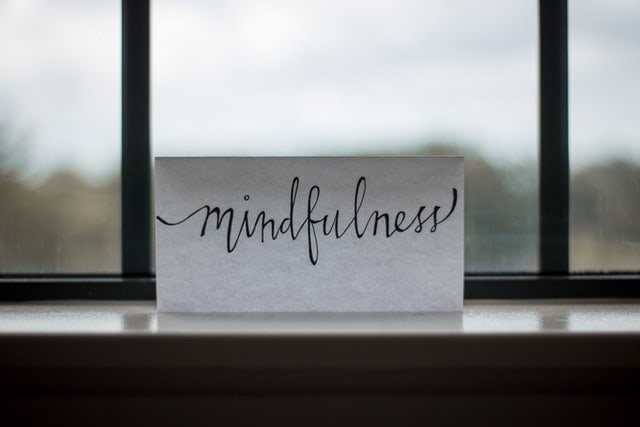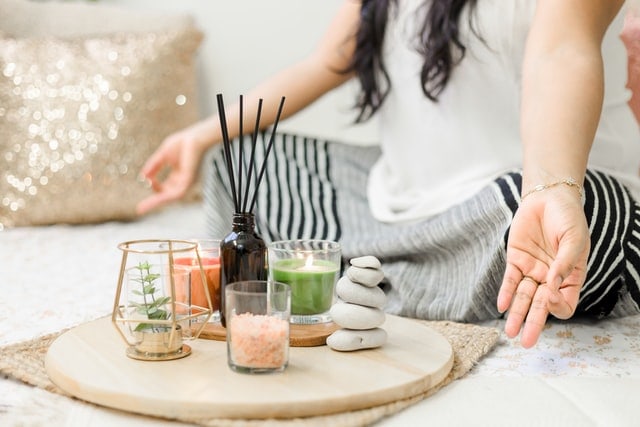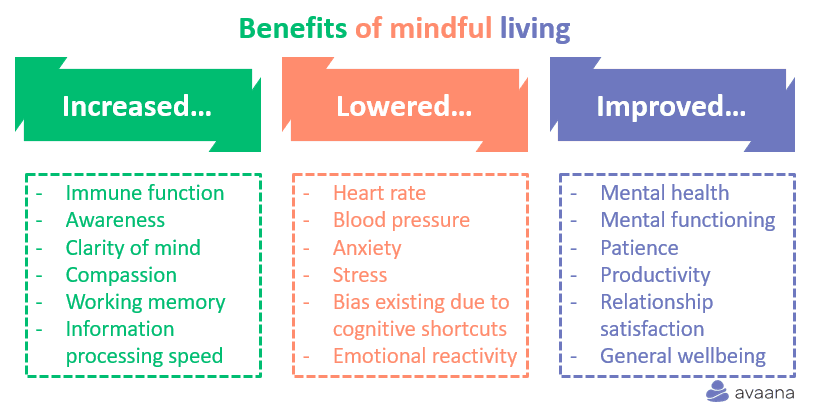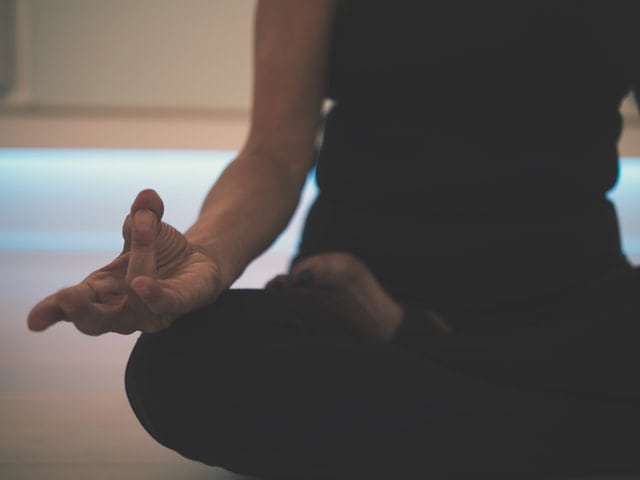It’s 7 a.m. and your alarm clock goes off. You roll out of bed, hop in the shower, head to work and go about your day as usual. You repeat these events over and over again without stopping to ‘smell the flowers’. Sound familiar? This is a common example of being mindless in your everyday life. If you’ve ever wanted to be more present and take control of your thoughts, learning how to be mindful can help you get there!

Mind full or mindful?
The average person is on autopilot nearly 47% of the time, which is astonishing! That means we are missing out on being present for almost half our lives! The great thing is that engaging in mindful practice assists with taking our brains off autopilot, so we can be fully present.
While practising mindfulness can be challenging to master initially, once you get into the habit of practising it regularly you will wonder why you didn’t start it earlier. Practising mindfulness can work wonders for your overall happiness and well-being. Additionally, being more in touch with daily goings on can have a positive effect on those around you, too.
Mindful meditation
Mindfulness can be practised in different ways. One such way is through mindful meditation. In fact, meditation is considered to be a formal way of being mindful. Mindful meditation can be undertaken while sitting, standing or lying down. Meditation may help ‘rewire the brain for happiness’. This is achieved by focusing your attention on what you’re doing at the moment and why you’re doing it.

Living in the now, how?
As mentioned, formal meditation isn’t the only way to train yourself to be more mindful. Some ways you can practice mindfulness each day are:
- Focusing: Recharge your body and mind with a stroll around the block. Be aware of how your body feels, where your mind goes and what senses you are engaging as you take each step.
- Reflecting: Think about the events of the day and find at least one happy, funny or positive aspect. This will help you focus on the good in your life. It may even help to write down these thoughts in a daily journal! Being able to reflect allows you to learn from mistakes and focus on what’s important to you.
- Mindful hydrating: Take a sip of water and focus on the space in your mouth and the water as it fills it. Allow the water to slowly make its way down your throat, focusing on the sensation. Before repeating this each time, inhale deeply and slowly exhale.
- Colouring in: Be fully aware of which colour you choose as you work away at this colouring-in project. Feel your troubles and other thoughts racing through your mind fade away. You should focus on staying within the lines and the task at hand. There are plenty of low-cost hobbies you can try at home.

Benefits of mindfulness
There are several reasons to start including mindfulness meditation or guided meditation practices in your life. The benefits of mindfulness cover physical, mental, and emotional benefits and can offer you a vastly improved life.
Physically, being more mindful can help you achieve:
- Better immunity to frequent coughs and colds
- Reduced heart rate
- Lowered blood pressure
- Better sleep and appetite
- Higher libido
But mindfulness meditation can also help you with your mental and emotional health. Here’s how.
- Increased awareness and appreciation of your life
- Clarity of thought and decision-making
- Deeper focus and better productivity
- Better communication
- Less cravings and unhealthy habits

The benefits of mindfulness at work
You’ll notice improvements in your performance at work when you start a regular mindfulness practice. It’s surprising how a short session of even 10 minutes in the morning can help ground you and give you the calm energy you need for your day.
Better productivity: With regular mindfulness practice, you’ll be able to control your focus and attention. This will makes you more effective at prioritising and completing tasks and working without distraction. You’ll find that you can communicate better, which is an important skill for all levels, especially when it comes to delegation or team and resource management.

Less stress: One of the top benefits of mindfulness is gaining control over your anxiety levels. As you become more aware of your mental health, you become more conscious of what your unique stress triggers are. You’ll be able to focus on finding solutions when possible and are more likely to accept or ignore the things you can’t change. Can you imagine what it would feel like to have greater work satisfaction?
The benefits of mindfulness in your personal life
One of the top benefits of mindfulness is that you are better able to fight depression or anxiety. You’ll develop an awareness of yourself and your thoughts and emotions. Can you imagine how this can help you in your personal life?
Better relationships: As you hone your awareness, you will be able to understand what you need in a relationship and you will be able to express it more clearly. Your romantic relationships and friendships become easier to navigate when there is clarity and honesty.
In addition, relationships with children or family members can be smoothened by your mindfulness practice. When you are less stressed or anxious, you can spend more meaningful time with those that you love.
Better health and lifestyle habits: We all know what stress eating is and we all have habits that aren’t good for us. With mindfulness, you become more attuned to your body and your mental health. This means you can relax or provide comfort for yourself without unhealthy substitutes. This helps reduce or understand cravings.
You’ll also learn to listen to what your body needs. As this becomes a habit, you will realize that you’re snapping because you’re tired or feeling low because you’re dehydrated. See how easy it is when you know what is going on in your body and mind.
How to start with mindfulness meditation
Mindfulness meditation is not a religious practice. Think of it instead as a fitness regimen for your emotional and mental health. Avaana has several resources to help you reap the benefits of mindfulness and emotional well-being on your own.
To begin with mindfulness, you should first understand it. What is mindfulness and how does one lead a life with more purpose? Our blog on what is mindfulness will help you gain a deeper understanding at this stage. 
If you want to try mindfulness meditation at home for yourself, it is simple. Try our guided meditation for mindfulness and see how you feel. Do note that it is not easy to focus so deeply when you are not used to it, so don’t be discouraged. If you feel restless or if your mind wanders during the practice, you will still gain some benefits of mindfulness as you spend a few quiet moments with your thoughts.
If you’re a naturally active or restless person, mindfulness might be harder to practice if you’re sitting still. Try doing breathing exercises or gentle sessions of yoga for beginners to keep yourself busy while still focusing on your inner self.



